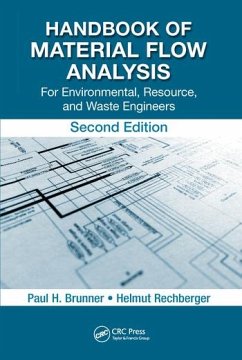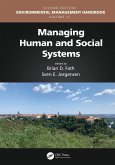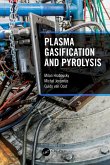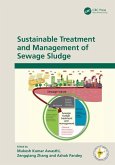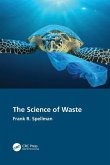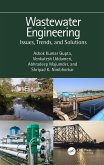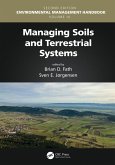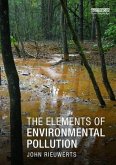In this second edition of a bestseller, authors Paul H. Brunner and Helmut Rechberger guide professional newcomers as well as experienced engineers and scientists towards mastering the art of material flow analysis (MFA) from the very beginning to an advanced state of material balances of complex systems. Handbook of Material Flow Analysis: For Environmental, Resource, and Waste Engineers, Second Edition serves as a concise and reproducible methodology as well as a basis for analysis, assessment and improvement of anthropogenic systems through an approach that is helpfully uniform and standardized. The methodology featured in this book is a vital resource for generating new data, fostering understanding, and increasing knowledge to benefit the growing MFA community working in the fields of industrial ecology, resource management, waste management, and environmental protection. This new second edition takes into account all new developments and readers will profit from a new exploration of STAN software, newly added citations, and thoroughly described case studies that reveal the potential of MFA to solve industrial ecology challenges.
"This is the best introductory textbook for MFA currently available. It is didactically well structured and covers the most relevant tools, illustrated with practical examples covering all human activities and the most relevant resources and pollutants of the anthropogenic metabolism of industrialized societies. "
-Daniel Beat Mueller, Norwegian University of Science and Technology, Trondheim, Norway
"MFA/SFA is a corner stone in environmental engineering. Without good controls of flows and stocks and estimates of how well we account for all parts of the system, no sound engineering platform can be established, no suitable technology can be introduced, and no sound decision can be made. The book Handbook of Material Flow Analysis: For Environmental, Resource, and Waste Engineers, Second Edition, by Brunner and Rechberger is the handbook to learn from. It provides all the basics and shows numerous examples of how strong a tool MFA/SFA is in understanding how complex systems function. In addition, it introduces the free software STAN which is an excellent tool for students, researchers and practitioners. It makes doing the actual MFA/SFA easy and fun and provides a consistent template for presenting flows and stocks in a complex system. We use it at the Technical University of Denmark and you should also use it." -Thomas H. Christensen, Technical University of Denmark, Copenhagen, Denmark
"One of the 21st century's challenging targets is sustainable society developments. Paul and Helmut have proposed Material Flow Analysis, which would become an important and inevitable tool to build a sustainable society. This book covers full of important information on the methodology and readers concerned will learn effective systems for resource conservation and reducing the waste flows and environmental burdens. Every public policy maker and research expert across the world, especially in Asian countries with rapid economic growth, should have this book of great information."
-Shinichi Sakai, Kyoto University
"A new edition of the Handbook of Material Flow Analysis is good news. The first edition was excellent and, by adding new and updated content, the authors continue their leadership in and fundamental contribution to the fields of material flow analysis and industrial ecology."
-Reid Lifset, Yale University, New Haven, Connecticut, USA
"The release of the second edition of the Handbook of Material Flow Analysis: For Environmental, Resource, and Waste Engineers is timely and is much awaited. Even more relevant and important is that the book is being edited by two prominent authors and experts in this field, namely Paul H. Brunner and Helmut Rechberger. Prof. Brunner has been the pioneer in this area of research and has established the need for MFA research in many systems. The second edition book would enhance further research in MFA among engineers involved in environmental research and it would provide a standard text that could be used by all. The book will be extremely useful to academia, researchers, students, policy makers and municipal officers who are involved in planning material flow and resource conservation. It will educate society on the need to achieve a sustainable society with minimal wastage but reduction in consumption. The book, no doubt, will be another innovative output from the authors and it focused on a state-of the-art methodology of MFA."
- P. Agamuthu, University of Malaya, Kuala Lumpur, Malaysia
"I have been an honest fan of this book from the first edition, and learned a lot from it. In recent years, material flow analysis has been evolving not only in methodology, but also in applied scope. The second edition for this book is published at the right time. In my opinion, this book will contribute to at least two aspects: on the theoretic level, the new insight of material flow analysis can effectively bridge the link from pure natural science (e.g., mathematics, physics) to engineering; and on the practical level, with many case studies in terms of environmental management, resource conservation, and waste management, this book provides an operable tool to guide how to utilize it in various fields."
- Xianlai Zeng, Tsinghua University, Beijing, China
"Material Flow Analysis has entered into the lexicon of resource and waste managers over the last decade and much of this is due to the erudite and informative work of Brunner and Rechberger. Updating their First Edition of 2003 is a welcome move- it gives us new insights into how MFA can influence our decisions on resource management in modern, urban societies. As we endeavour to understand what Circular Economy means to our economic future, MFA provides us with practical tools to understand how to calculate inputs and outputs with the aim, as expressed by the authors, "to utilize materials in a way that neither jeopardizes future generations nor puts at risk the environment and the availability of resources". This book should be obliged reading to everyone who wants to enter the field. The Handbook is this: an incisive, innovative and practical guide to help us understand these challenges and work them through in our own multi-faceted contexts."
-David Newman, President of the International Solid Waste Association, September 2012 - September 2016
"This book, beyond being an enjoyable read, is the main point of reference for the technicalities of MFA, and it extensively covers critical developments such as the handling of uncertainty - a fundamental aspect when it comes to waste and environmental engineering in general. The authors have done a splendid work in updating its content and making this second edition an absolutely worthwhile addition to our toolkit, and even more so because of the accompanying freely available software. I anticipate that the forthcoming generations of engineers and resource recovery experts will greatly benefit from this clear and simple, yet suitably accurate and sophisticated introduction to MFA, the related software and its applications. Fully and wholeheartedly recommended."
-Costas Velis, University of Leeds, United Kingdom
"Handbook of Material Flow Analysis is a must-read for students and newcomers in material flow analysis as well as for advanced scientists and practitioners. I recommend it as key reference for everyone interested in cutting-edge research and case studies of resource and waste management, industrial ecology, and urban metabolism. A landmark piece following duly the immense success of the first edition."
-Stefanie Hellweg, ETH Zurich, Switzerland
-Daniel Beat Mueller, Norwegian University of Science and Technology, Trondheim, Norway
"MFA/SFA is a corner stone in environmental engineering. Without good controls of flows and stocks and estimates of how well we account for all parts of the system, no sound engineering platform can be established, no suitable technology can be introduced, and no sound decision can be made. The book Handbook of Material Flow Analysis: For Environmental, Resource, and Waste Engineers, Second Edition, by Brunner and Rechberger is the handbook to learn from. It provides all the basics and shows numerous examples of how strong a tool MFA/SFA is in understanding how complex systems function. In addition, it introduces the free software STAN which is an excellent tool for students, researchers and practitioners. It makes doing the actual MFA/SFA easy and fun and provides a consistent template for presenting flows and stocks in a complex system. We use it at the Technical University of Denmark and you should also use it." -Thomas H. Christensen, Technical University of Denmark, Copenhagen, Denmark
"One of the 21st century's challenging targets is sustainable society developments. Paul and Helmut have proposed Material Flow Analysis, which would become an important and inevitable tool to build a sustainable society. This book covers full of important information on the methodology and readers concerned will learn effective systems for resource conservation and reducing the waste flows and environmental burdens. Every public policy maker and research expert across the world, especially in Asian countries with rapid economic growth, should have this book of great information."
-Shinichi Sakai, Kyoto University
"A new edition of the Handbook of Material Flow Analysis is good news. The first edition was excellent and, by adding new and updated content, the authors continue their leadership in and fundamental contribution to the fields of material flow analysis and industrial ecology."
-Reid Lifset, Yale University, New Haven, Connecticut, USA
"The release of the second edition of the Handbook of Material Flow Analysis: For Environmental, Resource, and Waste Engineers is timely and is much awaited. Even more relevant and important is that the book is being edited by two prominent authors and experts in this field, namely Paul H. Brunner and Helmut Rechberger. Prof. Brunner has been the pioneer in this area of research and has established the need for MFA research in many systems. The second edition book would enhance further research in MFA among engineers involved in environmental research and it would provide a standard text that could be used by all. The book will be extremely useful to academia, researchers, students, policy makers and municipal officers who are involved in planning material flow and resource conservation. It will educate society on the need to achieve a sustainable society with minimal wastage but reduction in consumption. The book, no doubt, will be another innovative output from the authors and it focused on a state-of the-art methodology of MFA."
- P. Agamuthu, University of Malaya, Kuala Lumpur, Malaysia
"I have been an honest fan of this book from the first edition, and learned a lot from it. In recent years, material flow analysis has been evolving not only in methodology, but also in applied scope. The second edition for this book is published at the right time. In my opinion, this book will contribute to at least two aspects: on the theoretic level, the new insight of material flow analysis can effectively bridge the link from pure natural science (e.g., mathematics, physics) to engineering; and on the practical level, with many case studies in terms of environmental management, resource conservation, and waste management, this book provides an operable tool to guide how to utilize it in various fields."
- Xianlai Zeng, Tsinghua University, Beijing, China
"Material Flow Analysis has entered into the lexicon of resource and waste managers over the last decade and much of this is due to the erudite and informative work of Brunner and Rechberger. Updating their First Edition of 2003 is a welcome move- it gives us new insights into how MFA can influence our decisions on resource management in modern, urban societies. As we endeavour to understand what Circular Economy means to our economic future, MFA provides us with practical tools to understand how to calculate inputs and outputs with the aim, as expressed by the authors, "to utilize materials in a way that neither jeopardizes future generations nor puts at risk the environment and the availability of resources". This book should be obliged reading to everyone who wants to enter the field. The Handbook is this: an incisive, innovative and practical guide to help us understand these challenges and work them through in our own multi-faceted contexts."
-David Newman, President of the International Solid Waste Association, September 2012 - September 2016
"This book, beyond being an enjoyable read, is the main point of reference for the technicalities of MFA, and it extensively covers critical developments such as the handling of uncertainty - a fundamental aspect when it comes to waste and environmental engineering in general. The authors have done a splendid work in updating its content and making this second edition an absolutely worthwhile addition to our toolkit, and even more so because of the accompanying freely available software. I anticipate that the forthcoming generations of engineers and resource recovery experts will greatly benefit from this clear and simple, yet suitably accurate and sophisticated introduction to MFA, the related software and its applications. Fully and wholeheartedly recommended."
-Costas Velis, University of Leeds, United Kingdom
"Handbook of Material Flow Analysis is a must-read for students and newcomers in material flow analysis as well as for advanced scientists and practitioners. I recommend it as key reference for everyone interested in cutting-edge research and case studies of resource and waste management, industrial ecology, and urban metabolism. A landmark piece following duly the immense success of the first edition."
-Stefanie Hellweg, ETH Zurich, Switzerland

